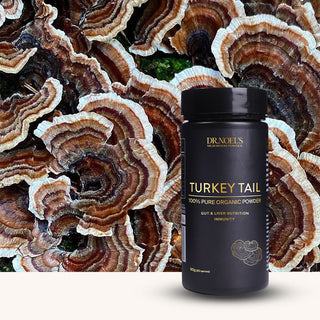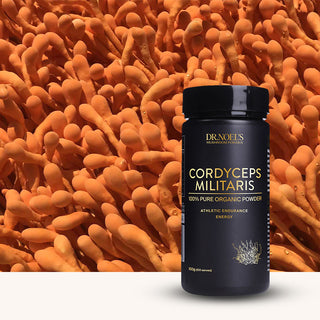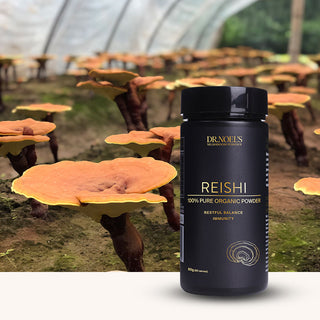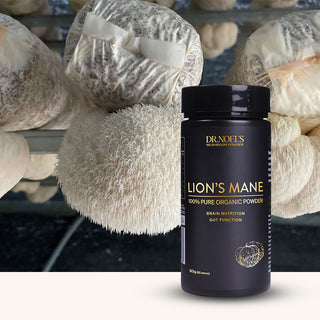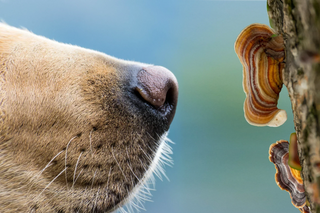Si a tu perro le han diagnosticado cáncer, puede resultar abrumador. Probablemente estés explorando todos los tratamientos o suplementos posibles que podrían ayudar. Un nombre que suele surgir en círculos naturales u holísticos es el hongo cola de pavo , y con razón. Respaldado tanto por el uso tradicional como por estudios científicos, el hongo cola de pavo puede ofrecer apoyo a los perros que se someten a tratamiento contra el cáncer.
Pero analicemos esto con cuidado y claridad, sin rodeos ni afirmaciones vacías.
¿Qué es la cola de pavo?
El Cola de Pavo (nombre científico: Trametes versicolor ) es un tipo de hongo medicinal. Crece de forma natural en troncos muertos y tocones de árboles, formando capas en forma de abanico que se asemejan a la cola de un pavo salvaje, de ahí su nombre.
Este hongo no es solo folclore. Se ha utilizado en la medicina tradicional china durante siglos y se ha convertido en uno de los hongos más estudiados por sus propiedades inmunológicas. Los compuestos que lo hacen tan valioso son sus polisacaropéptidos , principalmente PSK (polisacárido-K) y PSP (polisacárido-péptido).
¿Cómo ayuda la cola de pavo a los perros con cáncer?
Seamos claros: la cola de pavo no cura el cáncer . Sin embargo, puede fortalecer el sistema inmunitario , que desempeña un papel fundamental en la respuesta del cuerpo de su perro al cáncer y a tratamientos como la quimioterapia o la radioterapia.
Esto es lo que hace que valga la pena considerar Turkey Tail:
1. Modulación inmunitaria
Los hongos cola de pavo contienen betaglucanos, un tipo de polisacárido que ayuda a modular (no a sobreestimular) el sistema inmunitario. Esto puede fortalecer las defensas naturales de su perro, lo que podría frenar el crecimiento de tumores y mejorar su vitalidad general.
https://pmc.ncbi.nlm.nih.gov/articles/PMC10302218/
https://pmc.ncbi.nlm.nih.gov/articles/PMC2704234/
2. Apoyo antioxidante
El cáncer genera estrés oxidativo en el cuerpo, una especie de oxidación interna. Los hongos cola de pavo son ricos en antioxidantes que ayudan a combatir este estrés, reduciendo la inflamación y favoreciendo la salud celular.
https://pmc.ncbi.nlm.nih.gov/articles/PMC9117613/
https://www.mdpi.com/2076-3921/10/12/1899
3. Respaldado por investigaciones en perros
Esto no es solo teoría. Un ensayo clínico de 2012 de la Facultad de Medicina Veterinaria de la Universidad de Pensilvania descubrió que los perros con hemangiosarcoma (un cáncer agresivo) vivían significativamente más tiempo al recibir extracto de hongo cola de pavo (PSK), incluso sin quimioterapia.
https://pmc.ncbi.nlm.nih.gov/articles/PMC3440946/
Los perros que recibieron una dosis alta de cola de pavo sobrevivieron una media de 199 días, en comparación con los 86 días del grupo de control. Esta es una diferencia significativa, especialmente en una enfermedad conocida por sus cortos periodos de supervivencia.
Cómo darle cola de pavo a tu perro
Si está considerando la cola de pavo, opte por unextracto en polvo de cola de pavo de alta calidad , no solo por polvo de hongo molido. Los compuestos activos (PSK y PSP) se extraen mejor mediante un método de doble extracción (alcohol y agua caliente). Esto garantiza que su perro reciba los compuestos terapéuticos en forma biodisponible.
La dosis es importante. Aunque cada perro es diferente, muchos suplementos recomiendan:
-
100–200 mg de extracto por cada 10 kg de peso corporal , administrados una o dos veces al día.
-
Algunos protocolos de apoyo contra el cáncer pueden utilizar dosis más altas. Consulte siempre con su veterinario o con un veterinario holístico familiarizado con los extractos de hongos.
Consejo: Evite productos baratos que no especifiquen el método de extracción ni el contenido de betaglucano. Busque transparencia en el abastecimiento, análisis de laboratorio independientes e ingredientes claramente etiquetados.
¿Existen efectos secundarios?
Los perros suelen tolerar bien la cola de pavo. En raras ocasiones, pueden presentarse molestias digestivas leves (como diarrea) al iniciar la suplementación. Comenzar con una dosis baja e incrementarla gradualmente puede ayudar a minimizar los efectos secundarios.
Además, dado que aumenta la actividad inmunológica, es aconsejable hablar con su veterinario si su perro tiene problemas autoinmunes o está tomando medicamentos inmunosupresores.
¿Puede utilizarse junto con la quimioterapia?
Sí, y aquí es donde Turkey Tail realmente brilla.
Los estudios sugieren que sus efectos inmunoestimulantes pueden actuar sinérgicamente con la quimioterapia, ayudando a reducir los efectos secundarios del tratamiento y potencialmente mejorando los resultados. Muchos veterinarios integrativos la recomiendan como terapia complementaria, no como alternativa.
La investigación es prometedora
El extracto de hongo cola de pavo en polvo no es una cura milagrosa. Sin embargo, es uno de los pocos suplementos naturales que ha demostrado beneficios reales , revisados por pares, en perros con cáncer.
No se trata de elegir entre la medicina convencional o las opciones naturales, sino de aprovechar lo mejor de ambas. Y la cola de pavo parece ser uno de los pocos casos en que la ciencia respalda la tradición.
Si bien la investigación inicial es muy prometedora, en particular para el hemangiosarcoma, estudios más amplios (sobre todo en otros tipos de cáncer o con terapia combinada) continúan refinando nuestra comprensión. La cola de pavo parece ser uno de los suplementos de hongos más investigados y seguros para el apoyo del cáncer canino, pero siempre debe usarse como parte de un plan de tratamiento más amplio.
Si su perro está luchando contra el cáncer, Turkey Tail puede ser un aliado útil, no para reemplazar el tratamiento, sino para apoyar el cuerpo, la energía y el sistema inmunológico de su perro a lo largo del camino.
